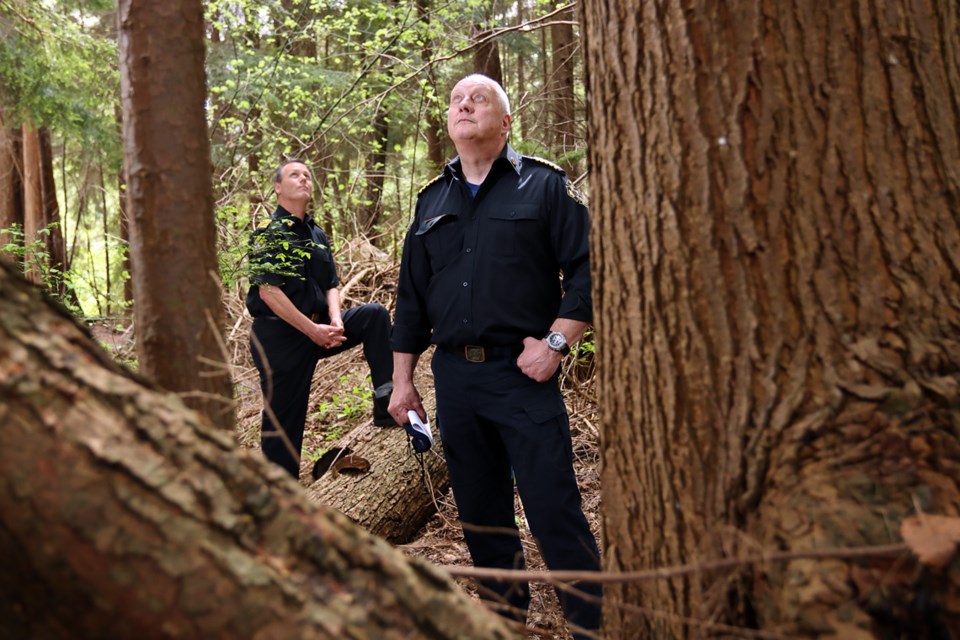Port Moody residents love the city’s natural environs.
But where they see lush forests cascading down mountainsides to the Burrard Inlet, Port Moody’s fire chief sees fuel.
Now Ron Coulson’s department is taking inventory of the trees and soil conditions to determine just how much fuel is out there and identify areas of particular threat from wildfires.
It’s the new reality of a changing climate that’s bringing longer, drier summers to a part of the world that used to be rainforest, said Coulson.
The process of preparing the department for the growing threat of wildfires actually began in 2007, four years after the Okanagan was razed by large conflagrations. Three years ago, the effort ramped up even more with a $20,000 grant for community outreach to help raise awareness about the risk.
Not that anyone really needed reminding, with reports about wildfires in Alberta, California and Australia as well as the Interior and north of British Columbia becoming a staple of the nightly news every season.
But seeing the dangers of such fires coming closer to home is a relatively new phenomenon. “We have to understand the risk that is in front of us,” he said.
In consideration of that growing risk, Port Moody embarked upon a project to update its wildfire protection plan. Among its 45 recommendations was a plan to map the areas where the city meets the forest, taking an inventory of their topography, as well as the soil conditions and species of trees.
That explains the little tags appearing on some tree trunks in those areas.
“We can battle a structure fire on the wild land interface,” Coulson said. “But we need to step up our ability to stop wildfires encroaching the community.”
That requires training, the development of strategies with other stakeholders — like the BC Wildfire Service and Metro Vancouver that administers regional parks like Belcarra — as well as specialized equipment such as sprinkler systems that can be deployed to protect buildings and pump assemblies to get water to remote locations.
But the best way to protect the city from wildfires is to take steps to ensure they never happen in the first place, said deputy fire chief Kirk Heaven, who got a first-hand look at the impacts wildfires can have on urban areas when he helped out with such events in Richmond and Fort St. James in 2018. He was also deployed to Fort McMurray, Alta., in 2016 when a massive wildfire destroyed large swaths of that community.
This spring Port Moody fire and rescue will begin blitzing neighbourhoods vulnerable to wildfire with information about preventative “fire smart” initiatives like moving woodpiles to safe locations away from structures, cleaning leaves from eaves, as well as how to space trees and prune them to reduce the amount of flammable material.
The campaign will even extend into the high schools, so students convening parties in the forest won’t burn it down. “They have to think before they act,” Heaven said.
Coulson said the effort is all about adapting to the changing climate while ensuring Port Moody residents can continue to enjoy the city’s natural beauty.



